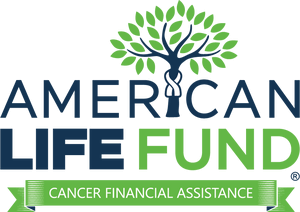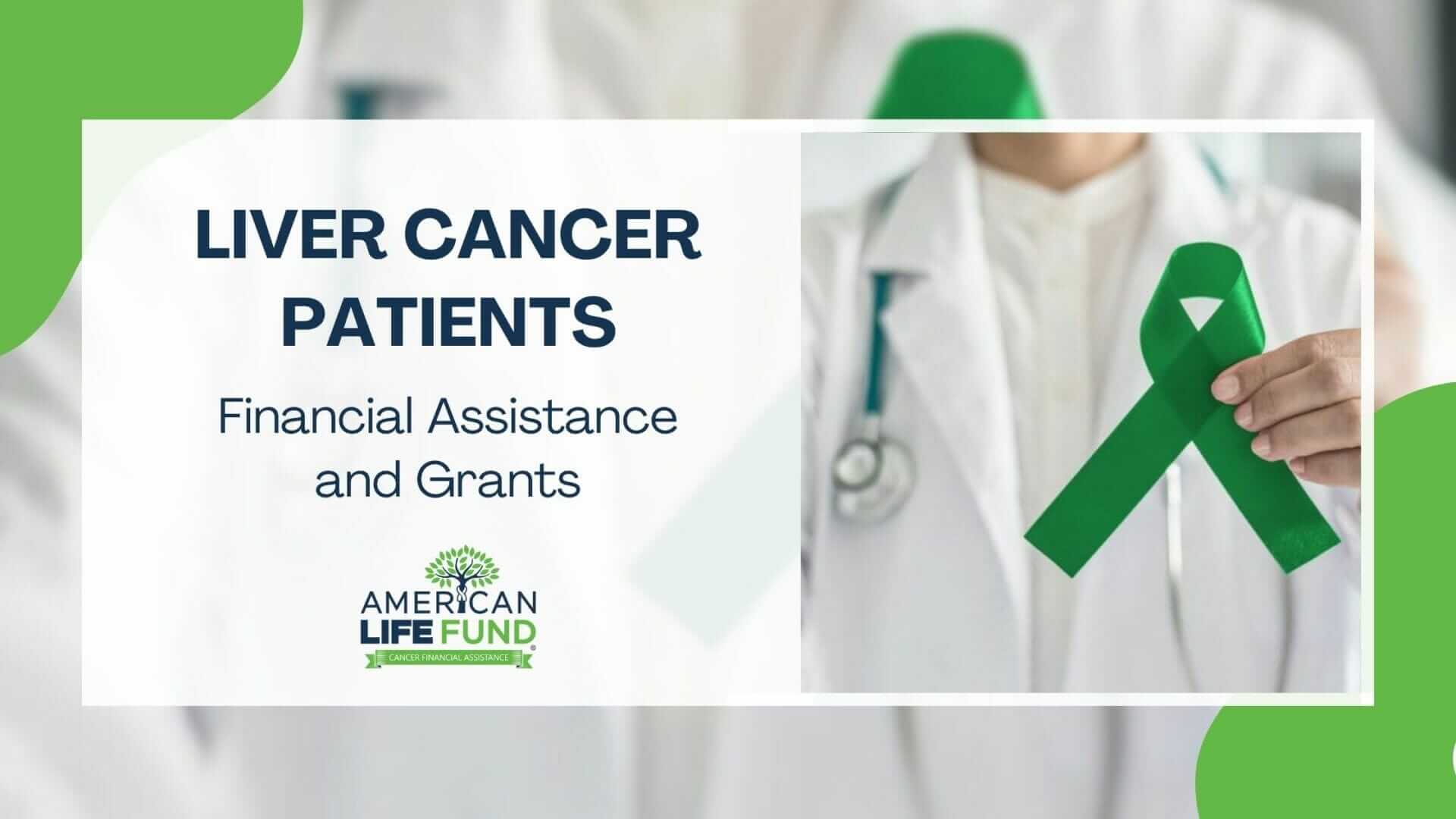Key Takeaways
- Liver cancer treatment can be costly, but help is available.
- Grants from organizations like the Hepatocellular Carcinoma Foundation, American Liver Foundation, and National Cancer Assistance Foundation assist with medical and daily expenses.
- Government programs such as Medicaid, SSDI, and Medicare provide financial support for eligible patients.
- Viatical settlements offer immediate funds by selling life insurance policies to cover treatment and living costs.
A liver cancer diagnosis brings emotional and financial burdens. We understand your challenges, so we offer direct financial assistance and support to help ease the financial strain often accompanying a cancer diagnosis. Here we will provide you with information and financial assistance resources to navigate the financial challenges of liver cancer. Being able to focus on your health and well-being during this challenging time is the priority.
Liver cancer patients have several options for financial help to manage the costs of their illness. Government programs like Medicaid covers medical treatments, and Social Security Disability Insurance (SSDI) provides income for those who can’t work due to their illness.
For quick and easy lump sum cash payments there are also viatical settlements to consider. Let’s take a look at what your options are:
How To Find Financial Assistance For Liver Cancer Patients
Whether you’re looking for support with medical treatment, insurance premiums, or everyday expenses, there are several avenues available to help you during your liver cancer journey. Below, we outline key methods to find the financial assistance you need:
Contact Your Local Health Department
Your local health department is a valuable resource in connecting you with financial assistance programs and nonprofit organizations that specialize in aiding liver cancer patients. They often maintain a list of available services and will guide you to the relevant local resources.
Explore Dedicated Liver Cancer Organizations
Dedicated liver cancer organizations, such as the Hepatocellular Carcinoma Foundation, are tax-exempt organizations committed to supporting those affected by liver cancer. Contact them for information about financial assistance programs and practical support tailored to liver cancer patients and their families.
Government Programs
Various government programs offer financial help for individuals battling liver cancer. These government programs, like Medicaid or state-specific assistance initiatives, help cover:
- Medical treatment costs
- Insurance premiums
- Co-payments
Contact your local government program to determine your eligibility and how to apply.
American Cancer Society
The American Cancer Society (ACS) is a well-established organization that assists cancer patients throughout their journey. Contact ACS for information on financial assistance, practical support, and resources available for liver cancer patients and their families.
Connect with Nonprofit Organizations
Numerous nonprofit organizations are dedicated to aiding cancer patients. These organizations often offer financial assistance, medical treatment support, and practical resources. For example, the Cancer Financial Assistance Coalition connects patients with financial aid resources.
Engage Your Health Care Team
Your healthcare team, including your doctors, nurses, and social workers, are valuable sources of information on finding financial assistance. They are well-connected within the medical community and can point you in the right direction. For instance, many hospitals have patient navigators who specialize in helping patients access financial aid and other support services. Additionally, your healthcare team may be aware of pharmaceutical assistance programs offered by drug manufacturers for specific treatments.
Find Local Resources
Use local resources available in your area to locate financial assistance programs. Local charities, support groups, and community organizations will provide information and support to liver cancer patients and their families. For example, organizations like the United Way often have programs to help with medical bills and related expenses.
Liver Cancer-Specific Financial Grants From Organizations
Hepatocellular Carcinoma Foundation (HCF) Grants
The Hepatocellular Carcinoma Foundation (HCF) is a leading organization supporting individuals affected by liver cancer. HCF provides liver cancer-specific financial grants to help cover medical treatment, prescription drug expenses, and other costs associated with liver cancer. To apply for HCF grants, visit their website and follow the application process for eligible patients.
American Liver Foundation (ALF) Grants
The American Liver Foundation (ALF) is another key player in the fight against liver cancer. ALF offers grants to support liver cancer patients in managing their financial burdens. These grants may assist with medical expenses, transportation, and other critical needs.
National Cancer Assistance Foundation (NCAF) Grants
The National Cancer Assistance Foundation (NCAF) is committed to financially supporting cancer patients, including those with liver cancer. NCAF offers grants tailored to help ease the financial strain of medical treatments, co-payments, and other expenses associated with liver cancer.
The Cholangiocarcinoma Foundation Grants
The Cholangiocarcinoma Foundation extends its support to individuals battling liver cancer, particularly cholangiocarcinoma. They offer direct financial assistance to alleviate the financial challenges faced by patients.
Government Financial Assistance Programs
Medicaid and State-Specific Assistance Programs
Medicaid is a federal and state-funded program that provides health insurance to low-income individuals. It covers a wide range of medical services, making it a key source of financial support for liver cancer patients. Eligibility for Medicaid varies by state, so check your local Medicaid office or website to determine if you qualify and how to apply.
Social Security Disability Insurance (SSDI)
For individuals who are unable to work due to liver cancer or related medical conditions, Social Security Disability Insurance (SSDI) offers financial support. SSDI provides monthly benefits to eligible individuals, helping cover essential medical and living expenses.
Supplemental Security Income (SSI)
Supplemental Security Income (SSI) is another government program that provides financial assistance to those with limited income and resources, including liver cancer patients. SSI offers financial support for basic needs, such as shelter, food, and clothing.
State-Based Cancer Assistance Programs
Several states offer specialized cancer assistance programs that provide financial help to cancer patients, including those with liver cancer. These programs may cover medical treatment costs, co-payments, and prescription drug expenses.
Medicare
Medicare is a federal health insurance program for individuals 65 and older. However, it also covers certain disabled individuals, including those diagnosed with end-stage liver disease. Medicare provides essential health coverage for liver cancer patients.
Veterans Affairs (VA) Benefits
If you are a military veteran, the Veterans Affairs (VA) offers comprehensive health care and financial support. Liver cancer patients who are veterans can access liver cancer-specific treatment and support through the VA.
Housing Financial Assistance
American Cancer Society (ACS)
The American Cancer Society offers a range of programs and services to assist cancer patients, including support with lodging during treatment. They help patients find free or reduced-cost accommodations near treatment centers.
Ronald McDonald House Charities
This charitable organization provides housing assistance to families with children facing serious medical conditions. While their primary focus is on pediatric patients, they may provide support to families dealing with liver cancer.
CancerCare
CancerCare offers patient assistance programs, including help with transportation and lodging expenses. They may be able to provide support for accommodation during liver cancer treatment.
Joe’s House
Joe’s House is a nonprofit organization that provides an online nationwide directory of lodging facilities that offer a discount for cancer patients and their families. It’s a great resource for finding affordable accommodations near treatment centers.
Hope Lodge
Hope Lodge, operated by the American Cancer Society, provides free, temporary housing for cancer patients and their caregivers receiving treatment away from home.
Utility Assistance
Government Utility Assistance Programs
Government utility assistance programs exist at federal and state levels to provide financial relief to low-income individuals, including liver cancer patients. These programs help cover the costs of heating, cooling, and other essential utilities.
Low-Income Home Energy Assistance Program (LIHEAP)
LIHEAP is a federal program that helps low-income households, including cancer patients, with their heating and cooling costs. Liver cancer patients experiencing financial hardship can apply for LIHEAP to receive assistance with utility bills during cancer treatment.
Utility Company Assistance
Many utility companies offer their assistance programs for customers experiencing financial difficulties. These programs may include flexible payment options, bill discounts, and energy-efficient upgrades to reduce utility costs.
Transportation Assistance
Road to Recovery (American Cancer Society)
The American Cancer Society’s Road to Recovery program offers free transportation to liver cancer patients, helping them reach medical appointments and treatment centers.
Gas Card Programs by CancerCare
CancerCare, a cancer-focused organization, provides gas card programs to assist liver cancer patients with transportation costs. These gas cards help cover the expenses of traveling to and from medical appointments.
Air Charity Network
The Air Charity Network assists individuals who must travel long distances for medical treatment. They provide air travel support, helping liver cancer patients access specialized care across the country.
Hospital Shuttle Services
Many hospitals and treatment centers offer shuttle services to assist patients in moving within their facilities. Patients can inquire about these services to streamline transportation from parking areas to treatment areas.
Financial Assistance For Child And Elder Care
Family Caregiver Support Program (FCSP)
The Family Caregiver Support Program, a federal program, assists family members who care for older relatives, including those impacted by liver cancer. The program offers respite services, information, counseling, and support groups.
National Respite Locator Service
The National Respite Locator Service assists caregivers, including those caring for individuals with liver cancer, in finding respite care services. These services offer temporary and needed relief for caregivers.
Child Care Aware of America
Child Care Aware of America provides information and resources on finding quality child care services. They offer guidance to parents, including liver cancer patients, to locate affordable and reliable childcare options.
Area Agencies on Aging (AAA)
Area Agencies on Aging operate locally and support elderly individuals and their caregivers. They offer various services, including respite care, home-delivered meals, and transportation assistance.
Friends of Man
Friends of Man is a charity organization that assists families in crisis, including those affected by a loved one’s battle with liver cancer. They offer financial support for various needs, including child and elder care.
Prescription & Treatment Assistance
Patient Access Network (PAN) Foundation
The PAN Foundation offers financial assistance for liver cancer patients for prescription drug coverage. They support various treatments, including targeted therapies and supportive care drugs.
CancerCare
CancerCare assists cancer patients, including those with liver cancer, to help with treatment-related costs. This assistance may cover co-pays, transportation, and other expenses associated with medical care.
NeedyMeds
NeedyMeds is a charitable organization that offers information on prescription assistance programs. They connect patients with resources for free or low-cost medications.
HealthWell Foundation
The HealthWell Foundation provides financial support for liver cancer patients who need specialty medications. They offer grants to cover the costs of prescribed treatments.
Good Days (Chronic Disease Fund)
Good Days, formerly known as the Chronic Disease Fund, assists patients with chronic diseases, including liver cancer, in accessing necessary prescription medications and treatments.
Life Insurance:
Viatical Settlements
Viatical settlements are a specific form of life settlement designed for individuals with life threatening illnesses like liver cancer. In a viatical settlement, the policyholder sells their life insurance policy to a viatical settlement company in exchange for a cash payment. This option is particularly beneficial for patients who require financial support to cover medical expenses and improve their quality of life.
Benefits for Liver Cancer Patients
Viatical settlements provide liver cancer patients with immediate financial assistance. The lump-sum payment can be used to cover medical expenses, treatment costs, or to improve the patient’s overall quality of life. These settlements offer flexibility and the option to access the policy’s value when needed.
Eligibility and Considerations
Eligibility for life and viatical settlements depends on various factors. The policyholder must have a policy of $200,000 or more and be diagnosed with a life threatening illness.
Impact on Life Insurance Coverage
Liver cancer patients need to understand that selling their life insurance policy through a settlement will typically result in the loss of the policy’s death benefit for their beneficiaries. However, immediate financial relief is a valuable trade-off for those facing significant medical expenses or looking to take advantage of precious time.
College Scholarships
Cancer for College Scholarships
Cancer for College offers scholarships for cancer survivors, including liver cancer patients, who are pursuing higher education. These scholarships provide financial support to students who have triumphed over cancer.
Patient Advocate Foundation’s Scholarship for Survivors
The Patient Advocate Foundation’s Scholarship for Survivors is designed for individuals with liver cancer. This scholarship empowers survivors to access higher education, providing essential financial support to overcome the hurdles of treatment-related costs and academic pursuits.
Ulman Foundation Scholarships
The Ulman Foundation offers various scholarships aimed at young adults affected by cancer, including liver cancer.
The Scott Delgadillo Liver Transplant Scholarship
The Scott Delgadillo Scholarship is specifically tailored to support liver transplant recipients, including those facing liver cancer.
Does Stage 4 Liver Cancer Qualify For Disability?
Stage 4 liver cancer represents an advanced and frequently terminal phase of the disease, posing substantial physical and financial difficulties for patients. If you find yourself in this situation, you may be eligible for disability benefits.
- Social Security Disability Insurance (SSDI): Patients diagnosed with stage 4 liver cancer may be eligible for Social Security Disability Insurance (SSDI) benefits. To qualify, they must meet specific criteria established by the Social Security Administration (SSA).
- Compassionate Allowances: The SSA has a program called Compassionate Allowances, which expedites the disability application process for individuals with severe medical conditions, including advanced liver cancer. Stage 4 liver cancer typically falls under this program.
- Medical Documentation: To apply for disability benefits, patients must provide comprehensive medical documentation of their liver cancer diagnosis, including the stage, the treatment plan, and the impact of the disease on their ability to work.
- Financial Support: Disability benefits, such as SSDI, provide financial support to help cover medical expenses, including prescription drug coverage, as well as everyday living expenses.
- Application Process: The process of applying for disability benefits is sometimes complex. It is advisable to seek assistance from social workers, support organizations, or legal experts specializing in disability claims.
- Retroactive Benefits: In some cases, individuals with stage 4 liver cancer may be eligible for retroactive benefits, which provide financial support for the period before the disability application is approved.
- Seeking Professional Guidance: Given the complexity of the application process and the importance of providing accurate medical documentation, seeking professional guidance will significantly increase the chances of a successful disability claim.
Stage 4 liver cancer is a debilitating condition, and individuals facing this diagnosis should explore their eligibility for disability benefits. Social Security Disability Insurance and the Compassionate Allowances program provides necessary financial support to help cover medical expenses and maintain a basic standard of living. Seeking professional guidance is helpful during the application process and securing the necessary benefits.





